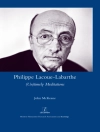The first volume devoted to interrogating the complex relationship — both historic and contemporary — between the United States and West Africa.
Over the last several decades, historians have conducted extensive research into contact between the United States and West Africa during the era of the transatlantic trade. Yet we still understand relatively little about more recent relations between the two areas. This multidisciplinary volume presents the most comprehensive analysis of the U.S.-West African relationship to date, filling a significant gap in the literature by examining the social, cultural, political, and economic bonds that have, in recent years, drawn these two world regions into increasingly closer contact.
Beginning with examinations of factors that linked the nations during European colonial rule of Africa, and spanning to discussions of U.S. foreign policy with regard to West Africa from the Cold War through the end of the twentieth century and beyond, these essays constitute the first volume devoted to interrogating the complex relationship — both historic and contemporary — between the United States and West Africa.
Contributors: Abdul Karim Bangura, Karen B. Bell, Peter A. Dumbuya, Kwame Essien, Andrew I. E. Ewoh, Toyin Falola, Osman Gbla, John Wess Grant, Stephen A. Harmon, Harold R. Harris, Olawale Ismail, Alusine Jalloh, Fred L. Johnson III, Stephen Kandeh, Ibrahim Kargbo, Bayo Lawal, Ayodeji Olukoju, Adebayo Oyebade, Christopher Ruane, Anita Spring, Ibrahim Sundiata, Hakeem Ibikunle Tijani, Ken Vincent, and Amanda Warnock.
Alusine Jalloh is Associate Professor of History and founding director of The Africa Program at the University of Texas at Arlington.
Toyin Falola is the Jacob and Frances Sanger Mossiker Chair in the Humanities and University Distinguished Teaching Professor at the University of Texas at Austin.
Содержание
Introduction — Amanda Warnock and Toyin Falola and Alusine Jalloh
West Africa and the United States in Historical Perspective — Adebayo Oyebade and Toyin Falola
The U.S. Consulate and the Promotion of Trade in Sierra Leone, 1850-80 — Ibrahim Kargbo
Stranded Families: Free Colored Responses to Liberian Colonization and the Formation of Black Families in Nineteenth-Century Richmond, Virginia — John Wess Grant Ph D
The Garvey Aftermath: The Fall, Rise, and Fall — Ibrahim Sundiata Ph D
Economic Relations between Nigeria and the United States in the Era of British Colonial Rule, ca. 1900-1950 — Ayodeji Olukoju
The United States’ Economic and Political Activities in Colonial West Africa — Hakeem I. Tijani
Developing a ‘Sense of Community’: U.S. Cultural Diplomacy and the Place of Africa during the Early Cold War Period, 1953-64 — Karen B. Bell
African Americans in Ghana and Their Contributions to ‘Nation Building’ since 1985 — Kwame Essien
Perspectives on Ghanaians and African Americans — Harold R. Harris
The Chasm Is Wide: Unspoken Antagonisms between African Americans and West Africans — Fred L. Johnson III
Double Consciousness and the Home-Coming of African Americans: Building Cultural Bridges in West Africa — Bayo Lawal
Sierra Leoneans in America and Homeland Politics — Alusine Jalloh
The United States and West Africa: The Institutionalization of Foreign Relations in an Age of Ideological Ferment — Peter A. Dumbuya
U.S. Foreign Policy toward West Africa: Democracy, Economic Development, Security — Andrew I. E. Ewoh
U.S. Economic Assistance to West Africa — Abdul Karim Bangura
The West African Enterprise Network: Business Globalists, Interregional Trade, and U.S. Interventions — Anita Spring
Poverty Alleviation in Sierra Leone and the Role of U.S. Foreign Aid: An Institutional Trap Analysis — Stephen Kandeh
Post-Cold War U.S. Foreign Policy toward Liberia and Sierra Leone — Osman Gbla
The United States and Security Management in West Africa: A Case for Cooperative Intervention — Olawale Ismail
Radical Islam in the Sahel: Implications for U.S. Policy and Regional Stability — Stephen A. Harmon
Undoing Oil’s Curse? An Examination of the Chad-Cameroon Pipeline Project — Ken Vincent
U.S. Foreign Policy Agenda, 2005-9: Why West Africa Barely Features — Christopher Ruane
Об авторе
TOYIN FALOLA is Professor of History, University Distinguished Teaching Professor, and the Jacob and Sanger Mossiker Chair in the Humanities at the University of Texas at Austin.












